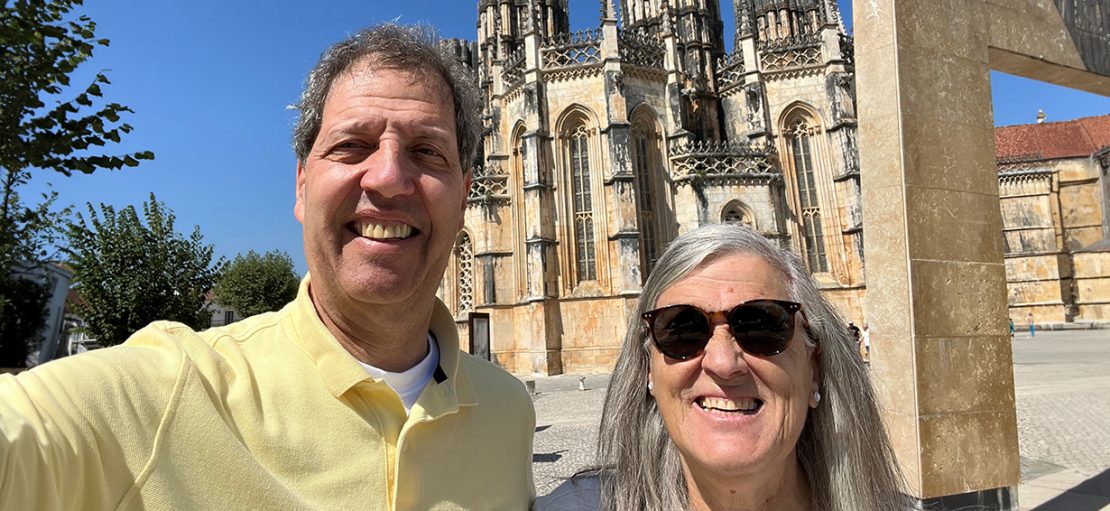
Morie A. Gertz, MD, MACP, is the Roland Seidler Jr. Professor of the Art of Medicine and Chair of the Department of Medicine at the Mayo Clinic in Rochester, Minnesota. He is a triple-board certified physician who has been recognized as a Mayo Distinguished Clinician and awarded the Jan Waldenström Medal for Medical and Scientific Achievements in Waldenström’s Macroglobulinemia. Dr. Gertz has served on ABIM Governance for over six years, first with the Hematology Board Exam Committee, then on the Hematology Longitudinal Knowledge Assessment (LKA®) Approval Committee, which he has chaired since January 2022. In 2023, Dr. Gertz was appointed Chair of the ABIM Hematology Board for the term beginning July 1.
Can you reflect on your service with the Hematology Exam Committee and then the LKA Approval Committee and their achievements so far?
The Approval Committee was a great experience for me because it allowed me to understand how important the whole certification process is in protecting the public at large and ensuring that we are providing them with highly competent specialists who manage a broad variety of hematological disorders.
During my time, I’ve seen the evolution of ABIM to where we really listen to diplomates. The first iteration of that was differentiating the people who were being certified for the first time from people who were maintaining certification. The next step was expanding assessment options in addition to the Traditional, 10-Year Maintenance of Certification (MOC) Exam, first with the two-year Knowledge Check-in and then the LKA, which showed that ABIM was taking seriously the feedback from diplomates asking for something that wasn’t high-stakes and that could be updated frequently. In a relatively short period of time, nearly 80% of diplomates due for an assessment are taking the LKA. Now we’re listening again as we begin to reflect on the realities of hematology practice by incorporating assessments that reflect malignant and non-malignant hematology, including patients being managed for hemoglobinopathy, coagulation and the whole spectrum of non-malignant hematology.
What does your new appointment as Chair of the Specialty Board mean to you? What are you looking forward to about this new role?
I’m fortunate because I’m succeeding Dr. Mark Udden, who did almost all of the heavy lifting on this, so I’m taking over a very smoothly running area. There are challenges, such as the introduction of artificial intelligence and rapid, factual answers to questions through Google redefining what knowledge assessment really needs to be. We’re going to need to refocus, not just on factual information, because that’s a key stroke away, but on reasoning skills and problem-solving—that’s a real challenge. Those are really the key attributes and understanding how to do that in the context of a multiple-choice assessment is not very straightforward. As we developed questions, we didn’t need many for the Traditional, 10-Year MOC exam, but now with the LKA our question bank needs to be substantially greater. The tempo of advances in hematology and targeted genetic therapies are such that keeping up with new developments becomes a real challenge.
You also do a lot of work in new research and clinical trials. What exciting changes or opportunities do you see on the horizon for hematology?
I’ve been around a long time. The changes I’ve seen border on the unbelievable. The key is the advance in basic sciences and understanding the mechanisms of cellular activity that allows development of targeted therapy in the malignant realm and antibodies in the coagulation realm, and synthetically constructed proteins using recombinant DNA technology that have changed the way we treat malignancies, sickle cell disease, hemophilia, inhibitors and myeloproliferative disorders. Cellular therapies are exploding with how we manage malignancies. All of this is driven by an amazing understanding of the basic sciences that allows rational therapies to be developed which at the end of the day will lead to remarkable benefits for the patient population.
Between your work as an educator, researcher and lecturer, not to mention volunteer work with ABIM, how do you balance everything?
I have a remarkable wife! At the core of everything, she’s tolerant of all the stuff but I’ll be blunt—I’m an empty nester. It’s not like it was with Saturday mornings of baseball games and ice-skating practice, so I have the freedom to pursue all these other academic issues. And when the speaking circuit is in a nice place my wife accompanies me and we do a little touring around so there are a few pluses for her.
I also work at an organization that allows me the time to pursue academic work. They’ve been very gracious about allowing me to work with ABIM which I find immensely satisfying. I believe I’m doing good things here that benefit the public at large. We are ensuring that our hematology workforce is of a higher caliber and that certification means something in terms of improving patient outcomes. We’re also serving the educational needs of our diplomates to make sure they can use assessment as an educational tool in itself that helps keep them abreast of new developments in hematology and aware of the foundations of our specialty.
What advice do you have for physicians starting out in their careers?
Hematology is the best specialty! (All due apologies to the others.) Being a hematologist is a wonderful experience every day. Grateful patients, complex diagnostics, a broad array of effective therapies…and if I was talking to anyone it would be medical students and residents, advising them to really think about hematology as a career. It’s immensely fulfilling and very exciting. It’s a highly collegial club, frankly, and it can be nerve-wracking. Hematology training is high intensity with high risks, and the results aren’t always top notch. We deal with a lot of challenges and, regrettably, patients still die of hematological disorders—that’s part of what we do. But it’s such a rewarding field and it’s so satisfying.
I love being a hematologist and I look forward every day to coming into work. I think people considering internal medicine and its subspecialties couldn’t go wrong with hematology.
What do you most want diplomates to know about the work that the specialty boards, approval committees and Item-Writing Task Force do together?
Two things: one is that we’re listening to you. We’re aware of your concerns; if you’re happy about doing the LKA, you’re going to be happier once we’ve refined the option to do malignant and non-malignant tracks, which ABIM is aiming to launch in 2025. That’s particularly important for dual-certified hematologists and oncologists, as it will allow oncologists to elect the option to certify in hematology if they deal with a lot of malignancies, for instance. We can design an assessment that recognizes their expertise in this area.
The other thing is that it’s important to understand the science of test development. The data is there and they indicate that people who perform well on ABIM assessments are not just good test-takers—they’re more competent physicians. Certification means you will perform better in practice and in your specialty.



